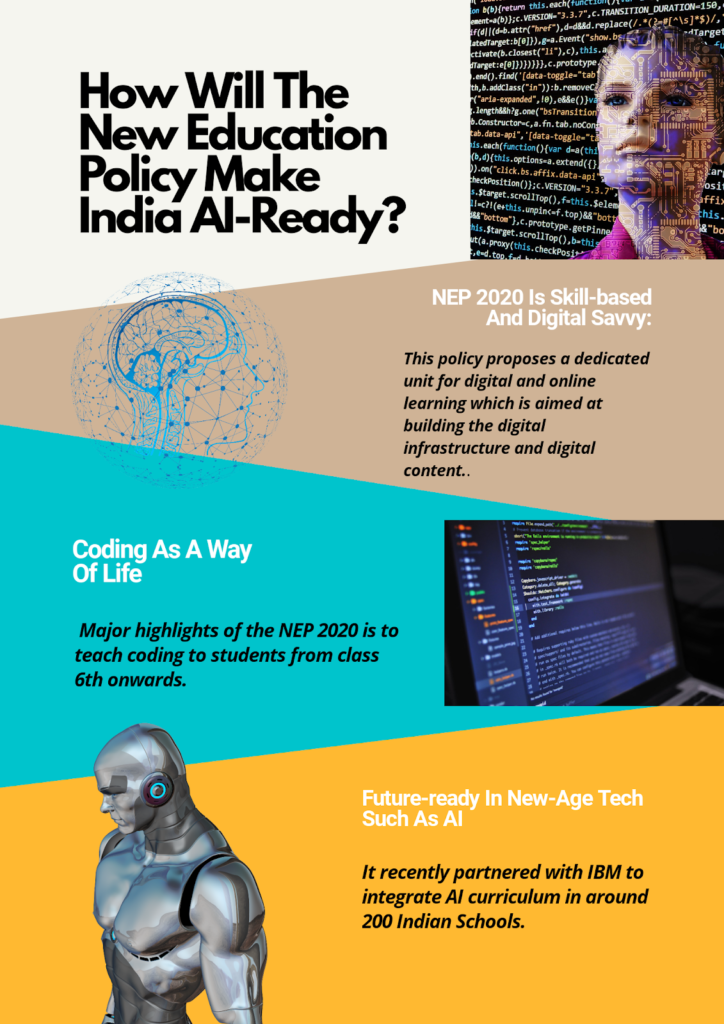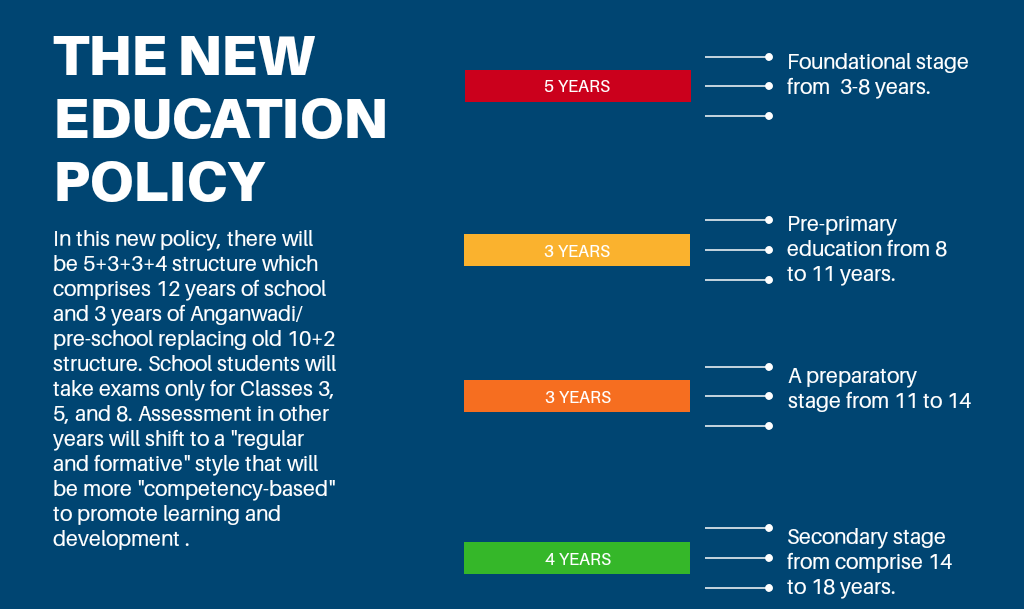The New Education Policy: A Ray Of Hope
By Dishaa Sinha
For years, our country had been following a very rigid and regressive form of education where students were not given the opportunity to explore all possible career fields in different streams. This style of education put immense pressure on students to excel in all the subjects which were forced upon them, to have a bright future. The traditional education system expected a fish to climb a tree, and that too with perfection. We were taught to follow a path made by others instead of making one on our own. It was based on the belief that career can be made only by obtaining a degree. Alternative career paths were not given much importance.
The significance of a well designed education system is known to everybody. Being educated is not enough, a person should know how to use the knowledge gained from school. A well designed education system empowers people and ensures that every human is capable of improving the quality of their life and making it what they have always wished for it to be. Empowered population results in its country’s expeditious growth.
This year, our country witnessed a huge change in the Indian Education Policy, after a gap of nearly 34 years. From providing students with the flexibility of subjects, to including multidisciplinary and holistic education which will increase the gross enrolment ratio by upto 50%, the new education system has made all the necessary changes to achieve 100% youth and adult literacy in India. The new policy has made education accessible to all by removing the language barrier for students till V grade and by making free courses available online in multiple languages, so that no one is left behind just because they don’t know a particular language. The NEP also replaces the 10+2 structure of curriculum with 5+3+3+4 curriculum structure which brings more focus to the schooling of students of age 8 and below as most of the cognitive development takes place in this age.The idea is to make the foundation strong for better understanding in future and to enhance logical, critical and rational thinking in students by including 3 years of pre-schooling followed by 12 years of formal schooling. A new National Assessment Centre, PARAKH (Performance Assessment, Review, and Analysis of Knowledge for Holistic Development) will also be set up to achieve the aim of holistic development in students. This approach will reduce the burden of students and make education more practical and applicable.

The biggest drawback of the traditional education system was that even after spending so much time and money on getting a degree, most of the people were still unemployed as they lacked the skills required to get a job. The earlier system focused on teaching students the theories written in the books instead of teaching how to use them in life. Students lacked the practical expertise required to sustain in life. This new system prioritizes skills over degrees.
The NEP aims at making students self-reliant and offering them with proper skill sets to create jobs for masses, instead of looking for one. It will make the transition from college to the professional world smooth for students. It will also give them the confidence required to change their direction at any point of time and the courage to keep exploring new career paths that it has produced. This new policy will encourage students to enjoy their education and take interest in it rather than think of it as an encumbrance.

